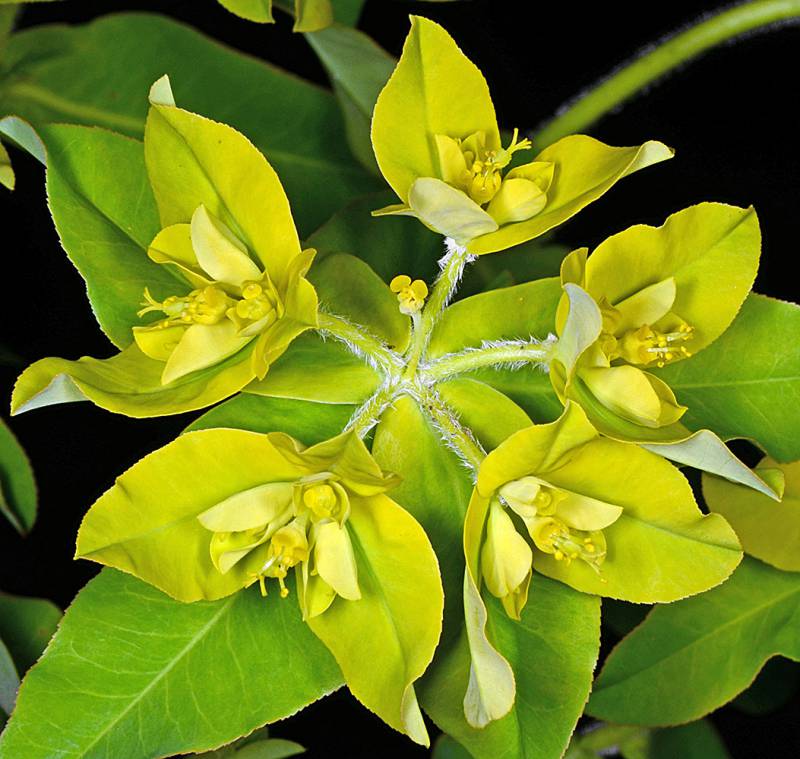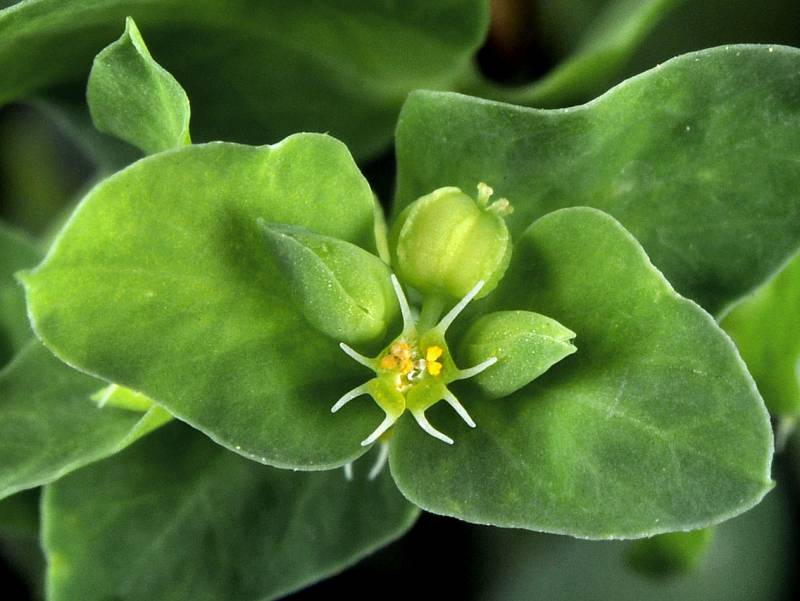Euphorbia oblongata
Euphorbia peplus
balkan spurge, egg-leaf spurge
petty spurge
Lower leaves alternate, 1-3 cm. long, rhombic-ovate to rhombic-obovate, narrowed abruptly to very slender petioles 3-10 mm. long; floral leaves opposite, short-petiolate, broadly ovate, 10-25 mm. long.
Inflorescence of cymes terminal on the branches;
flowers tiny, monoecious, borne in involucres; staminate flowers numerous, naked, each consisting of a single stamen; pistillate flower single and terminal in the involucre;
involucres 1-1.5 mm. long, bearing 4 glands with long, slender horns.
Capsule smooth, 2.5 mm. long, separating into three 1-seeded segments.
Euphorbia oblongata
Euphorbia peplus
Occurring west of the Cascades crest in lowland western Washington; southwestern British Columbia to California.
Occurring chiefly west of the Cascades crest in Washington; British Columbia to California, east across most of North America to the Atlantic Coast.
- Local floras:
BC,
CA,
OR,
WA
- Local Web sites:
CalFlora,
CalPhotos,
Flora NW,
PNW Herbaria
WildflowerSearch
iNaturalist (observations)
USDA Plants Database
- LBJ Wildflower Center
- SEINet
- Plants of the World Online
- Encyclopedia of Life
- Wikipedia
- Google Image Search
- Local floras:
BC,
CA,
OR,
WA
- Local Web sites:
CalFlora,
CalPhotos,
Flora NW,
PNW Herbaria,
Turner Photog.
WildflowerSearch
iNaturalist (observations)
USDA Plants Database
- LBJ Wildflower Center
- SEINet
- Plants of the World Online
- Encyclopedia of Life
- Wikipedia
- Google Image Search



